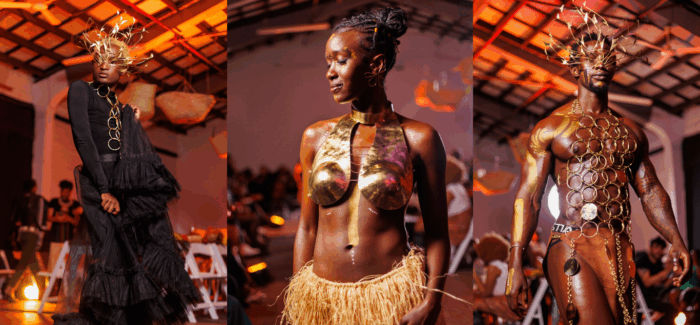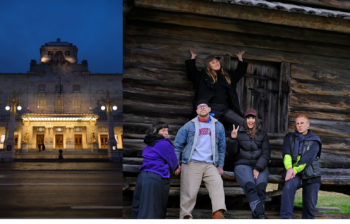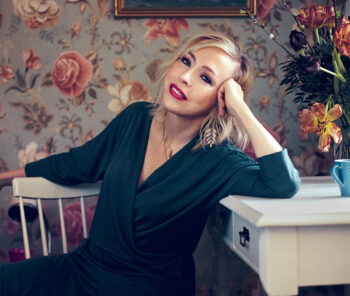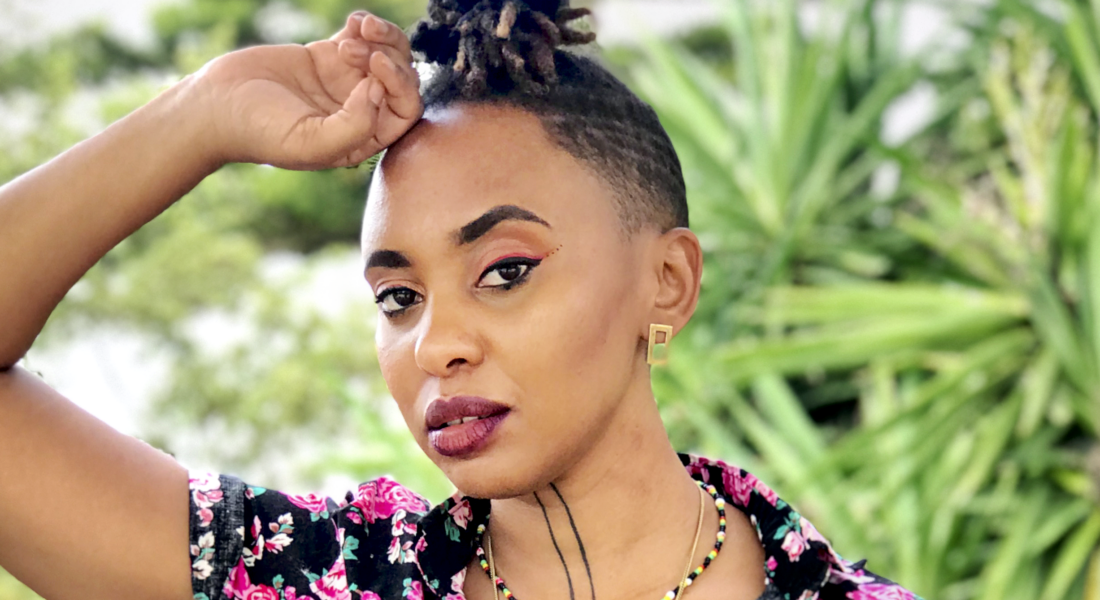
»I have always been too much«
The celebrated sex podcast The Spread is just the beginning for Kaz. Kenya’s most outspoken sex educator is breaking new ground and she sees herself as setting an example: »My lifestyle is political«.
When Kaz posted a video on social media answering questions together with her two partners, it went viral. More than one million users have watched them do the TikTok ‘couples challenge’ using the hashtag #throuplechallenge. Who was interested first? Who said I love you first? Who is most likely to start an argument?
Her polyamorous relationship regularly appears on Kaz’s social media, in line with the well known saying that the personal is political. “My lifestyle is political and I like to lead by example when I can. In a lot of the work I do I will talk about myself first and be like: Does anyone else have any experience with it? And I know many people want to practise ethical non-monogamy,” says Kaz.
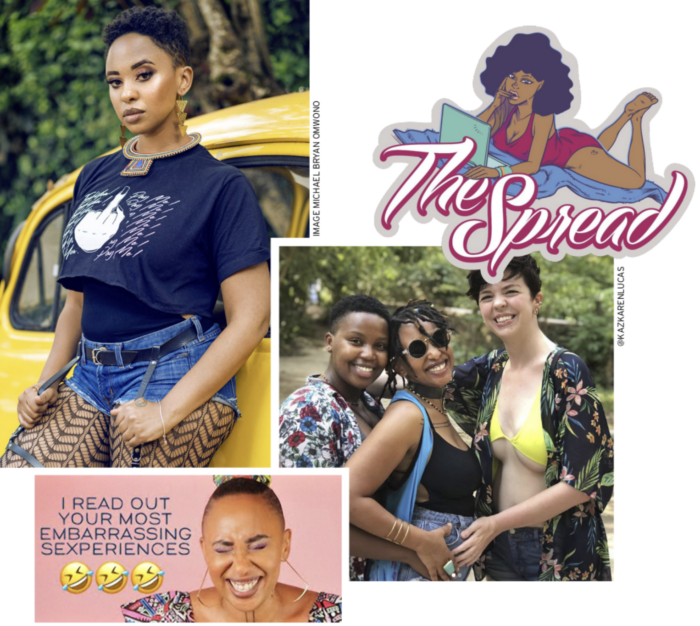
When we talk over a video meeting, she is sitting on the balcony of her home in Nairobi. She turns the camera to show the sunshine in the Kenyan capital and tells me how in the evenings it rains, “forcefully and a lot”. Kaz is a sex educator with a strong social media presence on multiple platforms, but the starting point of all her sex education is the work with the podcast The Spread. The podcast has a huge audience, not just in Kenya but also abroad. More than 80 episodes have been published since its start in 2016.
»It is a room where you can be yourself and there is absolutely no judgement.«
“We are creating safe places for people to learn more about their sexuality and feel free to talk, to share and to ask questions. It is a room where you can be yourself and there is absolutely no judgement,” says Kaz.
The very first episode has the title Contraception; straight-forward and fairly uncontroversial. But it’s definitely not a podcast that plays it safe. The Spread has tackled topics such as slut shaming, masturbation, sexual colonization, one-night stands, sex-positive parenting, religion in the bedroom, a day in the life of a porn star, sex work & quarantine and ‘How to fuck a fat girl’. Kaz struggles to pick a favourite episode. “It used to be the one about non-monogamy, where I broke down the different types of relationship styles. I really enjoyed the episode ‘Girl on Girl sex’, too,” she says.
At its very best, it’s both enlightening and fun, Kaz notes, and it’s exactly that combination that characterises The Spread. It’s deeply serious, a matter of life and death, but at the same time liberating, humorous and always with a focus on lust and pleasure.
»I’m learning while my audience is learning – there are so many things I don’t know«
“I talk about things that I am interested in, and sometimes it’s a topic that is trending in the country at the time. And I am also learning while my audience is learning – there are so many things I do not know.”
It’s a fine balance, moving between heavy and light topics. I ask how she does it with such apparent ease? “I honestly think it is just being myself, being authentic,” she answers.
Kaz was recently selected as one of the 20 honourable participants in the TED Fellows Program for 2021, and she wrote in an Instagram post that she has always been “too much” and “an outcast”. She describes the home she grew up in as liberal which drew interest by her friends from more conservative families. The outspokenness and norm-breaking opinions have followed Kaz since her childhood, and with them also an ‘otherness’. “People have always shunned me because of my views and how outgoing I am. It’s not the norm, especially not in my generation and older generations, to talk so openly, to show their bodies in social media and all of that. I have always been slut shamed, people saying things about me.”
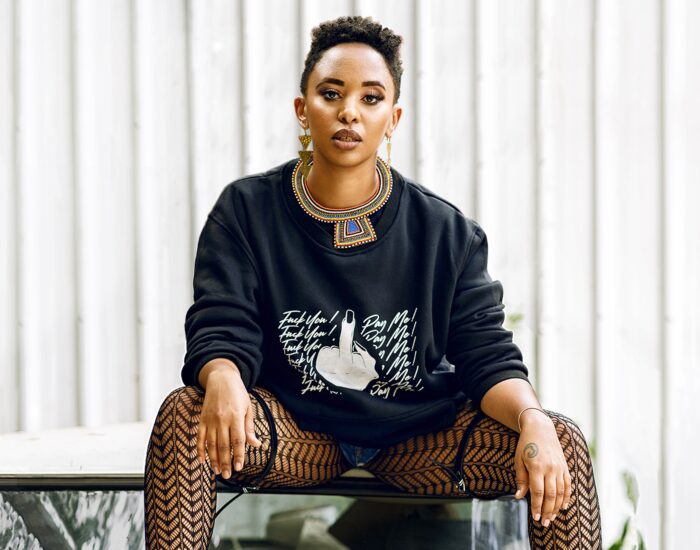
Sometimes it bothers her; feelings of judgement and disapproval that come with not fitting in, with going against the norm. Like when a friend introduces her to others by saying, “I know it’s surprising that me and Kaz are friends, but she’s actually a good person”.
“But it doesn’t bother me enough to change any aspect of myself. I see it, I recognise it and I walk away from it,” Kaz notes.
There’s another aspect of openness she also represents. Kaz is queer in a country where same-sex relationships are not acknowledged by the country. Sex between men is illegal. Kenyans face discrimination, violence, and other hate crimes. But the fight for change is very much alive.
In May 2019, the Supreme Court of Kenya ruled on the LGBTQI movement’s demand for homosexuality to be legalised. Kaz recalls that day and talks about how many of them had gathered both in the courtroom and outside in the streets to show support: “It was beautiful to see. I didn’t expect there to be that many people.”
»I am speaking for a lot of people that don’t have the voice or would rather not be seen, just for the safety of their own lives«
The day ended in a heavy loss, but everyone present was united together around the grief, disappointment and the continued struggle. “I would say it is growing stronger, the queer community.” When she first started hanging out in the queer circles of Nairobi back in 2006, a film night rarely saw more than ten people.
Now, an LGBTQI event can attract more than a thousand participants. But not everyone can be open with their sexuality. Kaz is very aware of how privileged she is and that privilege is dependent on different conditions: whether you pass as straight, where you live, and your social environment. “This is another reason why I am very focused on the work I do, because I know I am speaking for a lot of people that don’t have the voice or would rather not be seen, just for the safety of their own lives.”
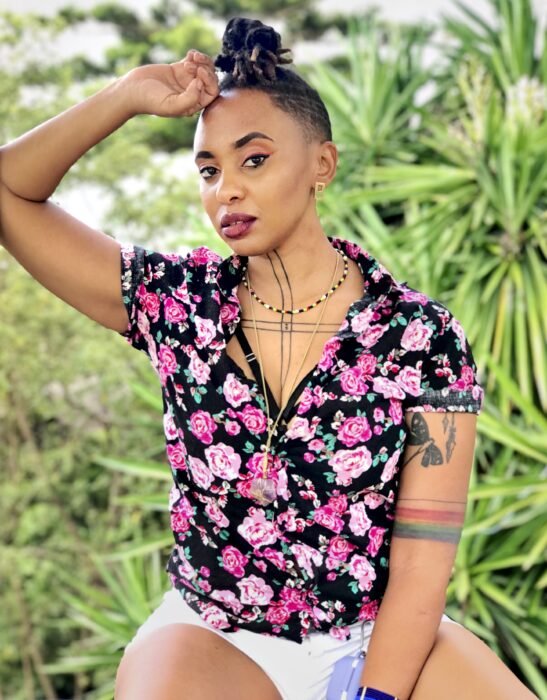
Change is coming. She is sure of it, and sure that she will be part of that change. She has a solid foundation to stand on now as a well-known sex educator, and even has the additional recognition from TED. The goal is to take what she has created with The Spread to a much larger scale. “Ideally, I would like to write a curriculum that would be incorporated into the system of the Kenyan schools.”
Kaz describes the current sex education in Kenya, where it exists at all, as “sex negative”: “It’s not about pleasure and consent, not about sexual and reproductive health. It’s like: If you have sex you’re gonna get syphilis, gonorrhea or aids, you’re gonna get pregnant and die,” she says sighing and then chuckling.
Consent is the cornerstone of the curriculum she wants to be part of creating, and consent is what she is the most passionate about right now – and not just with regards to sex. Kaz clarifies what consent could mean: ”… for example, regarding circumcision of boys, they don’t have agency over their bodies. Parents deciding biological sex for intersex children. Respecting pronouns. There are so many different aspects of consent in everyday life that people just don’t think about.”
It’s a long way to go to the knowledge-based, sex-positive sex education Kaz advocates for and represents. She sees it will take patience and time, but things are already starting to happen, and there are other actors to collaborate with to drive the development forward. “This is my life goal,” Kaz says. “I want to be part of the movement that is spearheading the change of comprehensive sexuality education in Kenya. The last four years, I’ve been creating a foundation for this.”
Anna Dahlqvist is a freelance journalist and author.
